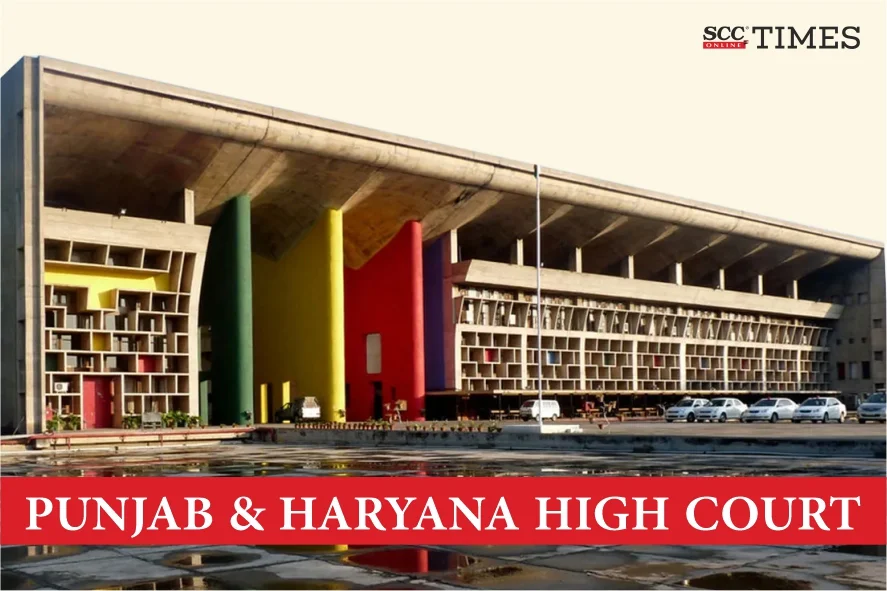Punjab and Haryana High Court: In a petition filed under Article 226/227 of the Constitution to set aside the order dated 11-11-1998 and award dated 07-06-2000, whereby the Labour Court had upheld the inquiry conducted by the respondent, Jagmohan Bansal, J., observed that the petitioner was implicated in 52 departmental proceedings and subjected to different punishments. In many cases, he was guilty of embezzlement of funds. The Court stated that punishment for minor or major misconducts on 52 occasions and commission of offence even during the pendency of departmental proceedings indicated that petitioner was an incorrigible employee and question of disproportionate punishment could be considered, had he not been involved in any other offence.
Thus, the Court stated that it neither found the penalty imposed by the authorities was disproportionate to alleged offence nor found any infirmity warranting interference of this Court.
Background
On 01-04-1997, the petitioner was appointed as conductor in Transport Department and remained in service from 1977 to 1995. During his eighteen years of service, he was implicated in 52 departmental proceedings. He was subjected to punishment of censure or recovery of embezzlement or stoppage of annual increments.
The respondent initiated a departmental inquiry based on complaint of the Inspector and subsequently, the petitioner was served charge-sheet. The petitioner’s reply was found unsatisfactory; thus, an inquiry officer was appointed who conducted inquiry based on evidence led by both sides. Subsequently, the petitioner admitted his guilt, and accordingly, a show cause notice was served. Prior to imposing punishment of termination from service, the respondent deferred the matter for two months to watch act and conduct of petitioner because he had assured that he would work with dedication. Unfortunately, during the intervening period, the petitioner again committed embezzlement, and a complaint was filed against him. In such circumstances, the respondent vide order dated 09-03-1995 terminated him from service.
Analysis, Law, and Decision
The Court observed that it was evident that the Inspector appeared before the Labour Court as a witness and deposed that the petitioner had abused and threatened him and caused hindrance in official duties. The petitioner was implicated in 52 departmental proceedings and subjected to different punishments. In many cases, he was guilty of embezzlement of funds. He committed embezzlement even during the pendency of impugned departmental proceedings and the department conducted proper inquiry, after which the petitioner admitted his guilt.
The Court stated that it was a settled proposition of law that scope of interference while exercising jurisdiction under Articles 226/227 of the Constitution in disciplinary proceedings was very limited. The Court had no power to look into quantum of sentence/punishment unless and until Court finds that sentence awarded was disproportionate to alleged offence. Further, it was a settled proposition of law that the High Court while exercising its jurisdiction under Article 226 of Constitution could look into the procedure followed by authorities. In case, it was found that enquiry officer or disciplinary authority had not considered any evidence on record or misread the evidence or procedure as prescribed by law had not been followed, the Court could interfere.
The Court stated that punishment for minor or major misconducts on 52 occasions and commission of offence even during the pendency of departmental proceedings indicated that petitioner was an incorrigible employee and question of disproportionate punishment could be considered, had he not been involved in any other offence. Thus, the Court stated that it neither found the penalty imposed by the authorities was disproportionate to alleged offence nor found any infirmity warranting interference of this Court.
[Sumer Singh v. Industrial Tribunal cum Labour Court, 2024 SCC OnLine P&H 12377, decided on 14-10-2024]
Advocates who appeared in this case:
For the Petitioner: R.K. Malik, Senior Advocate with Kartikey Chaudhary, Advocate.
For the Respondent: Raman Sharma, Addl. AG, Haryana.








